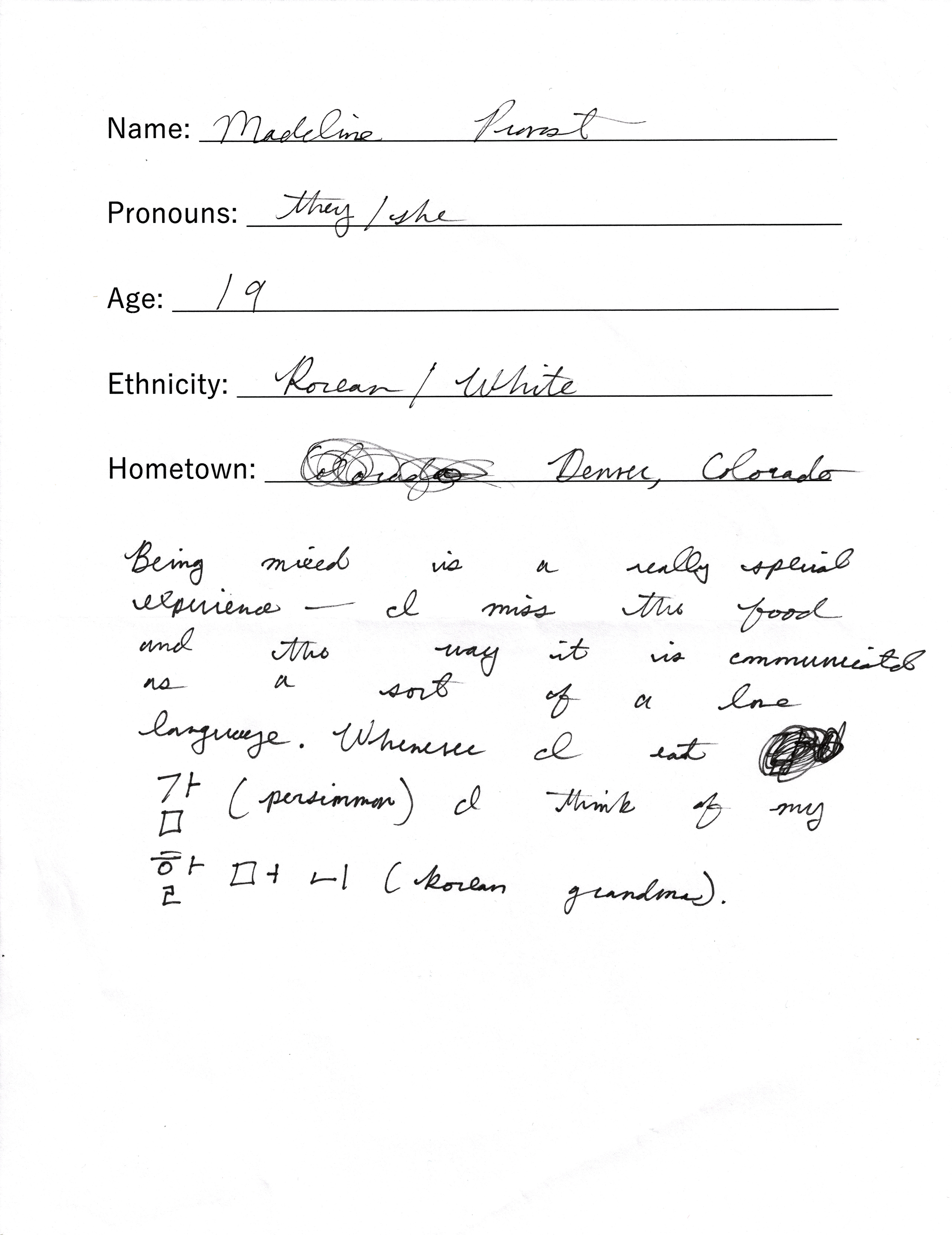Maddie Provost


My mom is South Korean, she's from Pusan, and my grandparents grew up there. My grandpa and grandma both had kind of crazy lives in Korea. My grandpa grew up with a mom and dad, but then his dad got shot and his mom left, so he was kind of on his own for a while. I think he went to the army and cut hair as a barber for the US soldiers who were in Korea, and then he came to the United States and was a barber for a very long time. My dad is white, he was born in New Jersey, so I am half white and half Korean.

I think that being mixed is definitely kind of like having an identity crisis every time you see your family and talk about your identity, and I think that's very different from my parents' experiences, especially on the Korean side, because my mom speaks Korean and she can understand and communicate with her family, and she knows them better, obviously, and she just understands the culture more. And I mean, it's the same thing with my dad.

It always just feels like a pull on each side, and not ever feeling like I'm one or the other enough to fit in with one certain side of the family. And I definitely have felt a lot of shame for not growing up speaking Korean or not being indulged in the culture as much as my mom was, so there's definitely an amount of shame with that. I think for my mom it was different in that she was more shameful of her culture and she didn't want to teach it to me because people would make fun of her for it when she was in high school.
My grandparents really don't speak English, so language I think is so important in not just communicating, but learning about each other. And obviously my grandparents know me and my mom will tell them about me, but it's hard because I can’t express gratitude or tell them about things that are going on in my life, unless my mom is there and it's obviously just different. So sometimes it just feels like I don't know them as much as I want to, or they don't know me as much as my white grandparents did. And I mean, the interesting thing is that when you don't have the language, there are other ways of communication and showing each other love and appreciation, and I think that's been a big thing with food and that kind of stuff. But yeah, it's very hard with the language barrier to understand each other.

Honestly, I do really think that food is the biggest thing. It could just be because Korean food is very specific to its culture, but I think that it's definitely been something that I grew up on and my grandparents know what type of food I really like, and they'll give it to me, they'll make it for me, they'll buy it for me and I guess I've been attuned to that, but it's definitely made me want to seek out my own culture more and explore it. And that's why I wanted to learn Korean, which I've been trying to do.
I feel like there's a lot of mixed people here and a lot of different cultural backgrounds, and I guess I don't feel as isolated in that experience because when I was in Colorado, I was probably the most diverse person in my friend group, which is saying a lot. And I definitely felt a little disconnected and disoriented because of that. But here, I know a lot of mixed Korean kids and one of my friends here is half Korean, half white, like me, so it's definitely nice to know people here who have that shared experience. It's definitely made me want to explore that and feel more comfortable in that identity rather than being at home. Even though I have family there, it's definitely more of an immersive experience here.
